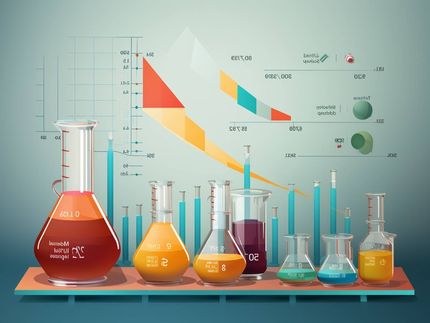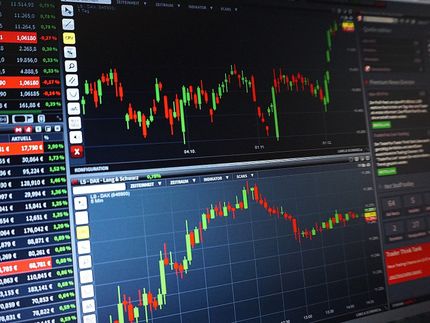Sartorius off to a dynamic start in fiscal 2020
Coronavirus pandemic so far with an overall neutral impact, but substantially different effects on the divisions
Sartorius started off fiscal 2020 dynamically with significant double-digit growth in order intake, sales revenue and earnings.
“We are very satisfied overall with our first-quarter results and confident about our business progress in the further course of the year,” commented CEO Dr. Joachim Kreuzburg. “Though the coronavirus pandemic also poses operating challenges to our company, we have successfully managed these so far.” Kreuzburg pointed out that Sartorius as a company relevant to the healthcare sector has been relatively unaffected by or exempted from lockdowns imposed by governments and that for this reason, the company’s production operations have largely been up and running at all sites. He also said that the Group’s supply chains have also been kept mostly intact. “However, all workflows at Sartorius are, of course, also affected by the extensive safety measures in place at all sites worldwide: our customer contacts, the transitions between changing production shifts, and office work that has been converted to remote working from home.” Regarding the company’s order intake, the effects on the divisions were quite different. While the standstill in economic activity in China during January and February noticeably dampened demand for laboratory instruments, demand for consumables for the production of medications and vaccines as well as for diagnostic test kits has recently been high and partly influenced by pull-forward effects due to stocking initiatives by customers, according to Kreuzburg. “At the Group level, such opposite effects have largely been offset,” said Kreuzburg.
Business development of the Group
First-quarter Group sales revenue rose against moderate prior-year comparables by 16.5% in constant currencies to 509.9 million euros (reported: +17.0%). The acquisition of the cell culture media specialist Biological Industries, which Sartorius had completed in December 2019, contributed a good one percentage point to growth, as expected. Consolidated order intake increased by 29.7% to 629.4 million euros (reported: +30.4%) and underlying EBITDA was 137.9 million euros, up from 114.0 million euros a year ago (reported: +20.9%). The respective margin was positively affected by economies of scale and slightly negatively impacted by currency exchange rates, rising to 27.0% (previous year [PY]: 26.2%). Relevant net profit for the Group increased by 17.5% to 57.1 million euros; earnings per ordinary share were 0.83 euros (PY: 0.71 euros); earnings per preference share stood at 0.84 euros (PY: 0.72 euros).
Business performance in the regions
Sartorius increased its revenues in all business regions by almost the same double-digit rates. The Americas region recorded an increase in sales revenue of 17.1% to 180.7 million euros. In Asia | Pacific, sales revenue rose by 16.3% to 122.2 million euros. While the Bioprocess Solutions Division won large equipment orders in this region, the Lab Products & Services Division saw a significant decline in sales, especially during the first two months of the year. Yet in March, business picked up in China. In the EMEA region, Sartorius earned 207.0 million euros, equaling a sales gain of 16.1% compared to the first quarter of 2019.
Business development of the divisions
The Bioprocess Solutions Division that offers a wide array of innovative technologies for the manufacture of biopharmaceuticals achieved an increase in sales of 22.4% (reported: +23.0%) to 394.3 million euros against relatively moderate comparables in the prior-year quarter. Non-organic growth contributed by the acquisition of Biological Industries was close to one percentage point, as expected. Stocking initiatives by customers in the context of the coronavirus pandemic clearly contributed around two percentage points to growth. The division’s order intake saw an even more pronounced increase, rising by 39.6% (reported: +40.3%) to 506.2 million euros. The additional momentum was driven by larger equipment orders from China and by pull-forward effects due to stocking initiatives of customers in the context of the coronavirus pandemic. Underlying EBITDA of the Bioprocess Solutions Division increased to 119.9 million euros (PY: 90.9 million euros) due to economies of scale and despite slightly negative currency effects. The respective margin was 30.4%, up from 28.3% in the comparative period.
Development of the Lab Products & Services Division, which specializes in technologies and products for laboratories primarily in the pharma sector and in life science research, was impacted by the strongly reduced demand in China in the first quarter, particularly for laboratory instruments. The impact of the pandemic crisis was approximately -6 percentage points on the division’s sales revenue, which remained at the previous year’s level, with an increase of 0.1% (115.6 million euros / reported: +0.5%). The acquisition of Biological Industries contributed approximately 2.5 percentage points to non-organic growth. Order intake rose slightly by 0.5% (reported: +0.9%) against the prior-year base to 123.3 million euros. The division’s underlying EBITDA amounted to 18.0 million euros (PY: 23.2 million euros); its respective margin was 15.6%, below the prior-year figure of 20.1%. This was due to negative currency effects besides low capacity utilization resulting from the coronavirus crisis in China at the beginning of the year.
(All growth rates for sales revenue and order intake are given in constant currencies, as in the past years; sales revenues and margins of the divisions in the comparative period were restated due to changed allocation of two small product segments.)
Key financial indicators
The Sartorius Group has a very sound balance sheet and financial base. It equity ratio rose to 39.0% (Dec. 31, 2019: 38.0%). The ratio of net debt to underlying EBITDA decreased to 1.8 (Dec. 31, 2019: 2.0). Due to the coronavirus pandemic, Sartorius reduced the volume of its investments in the first quarter somewhat more than originally planned. Accordingly, its CAPEX ratio after the first three months was 8.8%, down from 12.9% in the prior‑year quarter.
Planned acquisition of selected Danaher Life Science assets
Sartorius continues to expect to receive the final antitrust approvals and to complete the planned acquisition of selected life science businesses of the Danaher Group within the next weeks. “We are confident that we will be able to complete the acquisition and begin with integration shortly,” commented Kreuzburg. “The acquisition will substantially expand our offering in both divisions very substantially by innovative technologies that will enable us to support our pharma customers even more comprehensively in the development and production of biotech medicines and vaccines. Integration will be a particular challenge due to the various restrictions during the coronavirus pandemic, but we have intensively prepared for it.”
Guidance for the full year of 2020 updated
Based on the company’s first-quarter results and in connection with the pending completion of the acquisition of selected Danaher life science businesses, Sartorius has adjusted its guidance for the full year of 2020. This forecast is based on the scenario that the Danaher portfolio acquired will be included as of May 2020.
Due to the ongoing coronavirus pandemic, this guidance is subject to greater uncertainty than usual concerning both the development of existing businesses and the integration of the acquisitions. In this context it is assumed that China will continue ramping up its economy after the pandemic there has largely been overcome and that Europe and the USA will soon have reached the peak of the pandemic and will ease economic restrictions.
Under these prerequisites, management now expects that Group sales will increase by 15% to 19% (former guidance: 10% to 13%). Initial consolidation of Biological Industries remains projected to contribute close to 1.5 percentage points to sales growth. Consolidation of the portfolio acquired from Danaher is currently forecasted to contribute a good 5 percentage points to growth. Regarding profitability, Sartorius continues to project that its underlying EBITDA margin1 will increase year over year from 27.1% to about 27.5%. The ratio of capital expenditures (CAPEX) to sales revenue1 is expected to be around 10% (PY: 12.3%), as projected so far. Net debt to underlying EBITDA, including the acquisition of the Danaher portfolio, is forecasted to be about 2.75 by year-end 2020 (former guidance without including this acquisition: slightly below 2.0).
For the Bioprocess Solutions Division, Sartorius now projects sales revenue to increase by 17% to 21% (former guidance: 11% to 14%), with consolidation of Biological Industries expected to contribute around 1 percentage point and that of the Danaher portfolio around 3.5 percentage points. Due to high demand on the whole, organic growth is thus anticipated to be about 3 percentage points higher than the company’s former guidance. With respect to the division’s underlying EBITDA margin, management continues to project that it will increase to around 30.0% (PY: 29.1%), which includes slightly dilutive effects due to consolidation of Biological Industries and the Danaher portfolio.
The Lab Products & Services Division is expected to increase its sales revenue in 2020 by 10% to 14% (former guidance: 7% to 10%), with consolidation of Biological Industries continuing to be forecasted to contribute 2.5 percentage points and that of the Danaher portfolio around 10 percentage points to growth. As negative impacts of the coronavirus pandemic are also expected to persist for the remainder of the year on parts of the division’s business, the forecast for organic growth contribution has thus been reduced by around 6 percentage points. The division’s underlying EBITDA margin remains projected at about 20.0% (PY: 21.6%), which includes an increase of around 1.5 percentage points based on consolidation of the Danaher portfolio and a slight dilution due Biological Industries.
All forecasts are based on constant currencies, as in the past years.
Annual Shareholders’ Meeting and Dividend Proposal
The pandemic has also affected the further planning for holding this year’s Annual Shareholders’ Meeting that was originally scheduled for March 26 as an in-person event and then had to be postponed. “Regarding the ongoing restrictions on larger gatherings in Germany, we will use the new legal option of holding an online-only Annual Shareholders’ Meeting,” said Kreuzburg, who simultaneously announced a review of the dividend proposal. “We assume that we will have to live with considerable uncertainties and risks for still some time to come. Yet at the same time, the current situation offers additional opportunities for further strengthening our portfolio by innovative technologies. Additionally, we will also make considerable efforts to support people and institutions that have been particularly hit by the pandemic crisis or that play an important role in coping with it. Within the context of these three aspects, we may adjust our dividend proposal and will provide more details after final deliberation with the boards responsible.”



























































